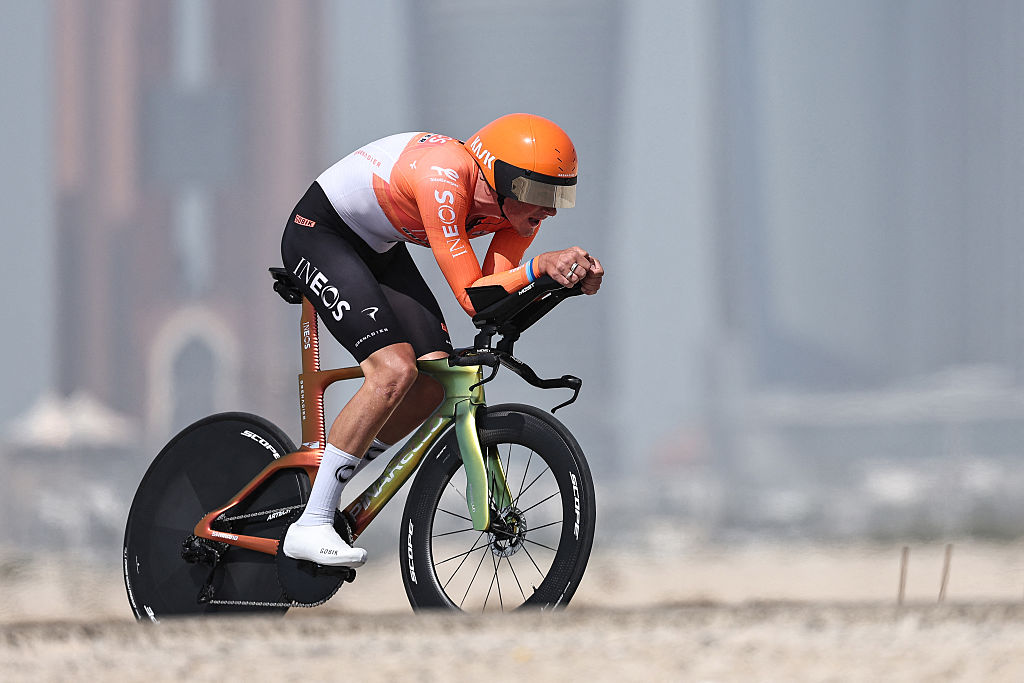Chris Froome dodged a bullet, says former WADA head Pound
'The case is not the end of anti-doping as we know it'
The latest race content, interviews, features, reviews and expert buying guides, direct to your inbox!
You are now subscribed
Your newsletter sign-up was successful
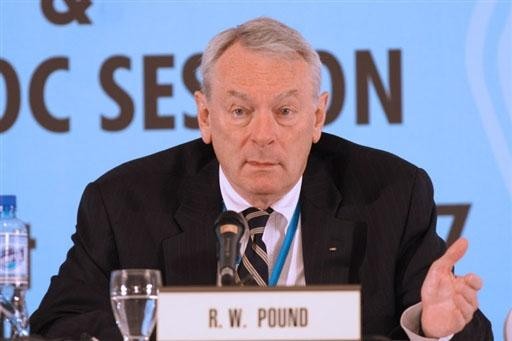
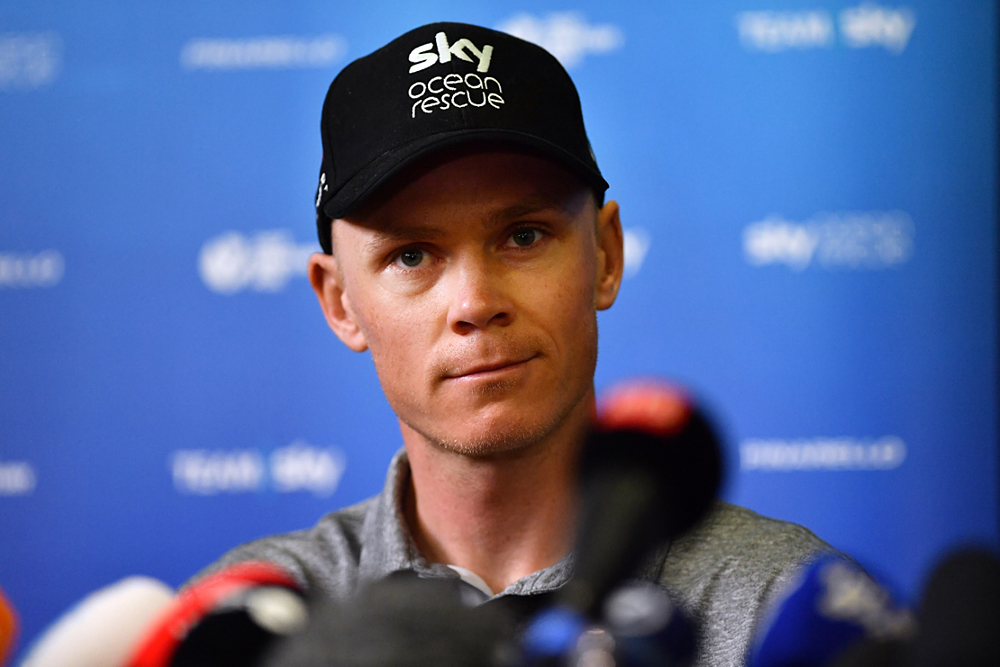
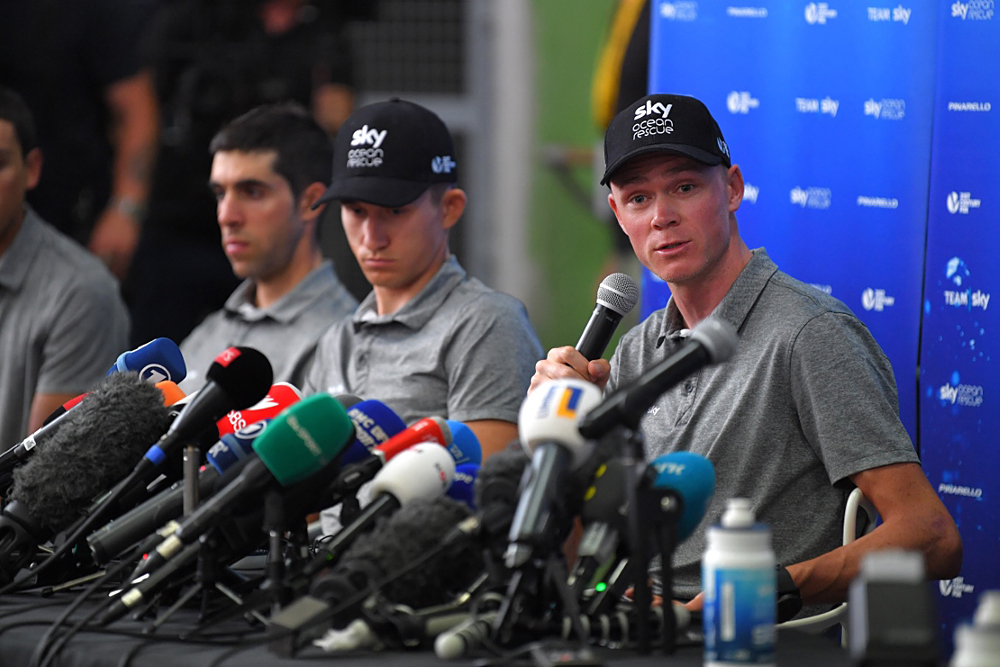
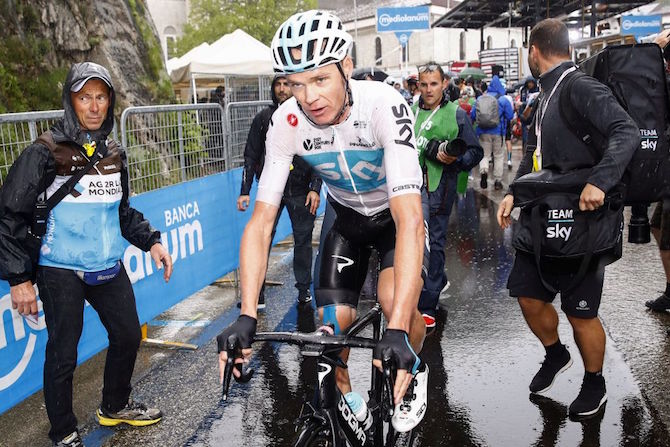

Team Sky fans might hail the UCI decision to drop anti-doping proceedings against Chris Froome for excess salbutamol levels, and sceptics might fear that the precedent the case sets will mean the end of the fight against doping. But former WADA chief Dick Pound, a long-time critic of cycling and its sordid doping past, does not feel that the Froome case undermines WADA's cause.
Pound: UCI must have known about doping
Pound says IOC may drop cycling from Olympics on Armstrong confession
Pound on the Tour de France: I don't believe what I see
Pound: Past UCI leaders only wanted to shoot the messenger
WADA will not appeal UCI verdict on Chris Froome salbutamol case
Team Sky will not release further information on Chris Froome salbutamol case
Lappartient says UCI were not pressured by ASO attempt to block Chris Froome from Tour de France
Chris Froome: Of course the salbutamol case has been damaging
"I don't think it's the end of anti-doping as we know it, I think it's just a case where you don't want to take a chance of convicting someone who was morally innocent in all of this," Pound told Cyclingnews this week.
"If I were guessing, I'd guess he dodged a bullet," Pound said. "If it was close enough when they adjusted the readings for the conditions - it wasn't twice as much, as it was reported - he should wipe his forehead and get out of town."
Froome tested well above the WADA limit for the asthma drug salbutamol on stage 18 of the Vuelta a España last September, but it took nine months and immense pressure on the UCI and WADA to conclude the case before the start of the Tour de France.
After a retroactive application of new standards for correcting an athlete's salbutamol levels for dehydration, Froome's readings were still 20 per cent above the allowed limit. But the UCI accepted WADA's stance that Froome's test results were "not inconsistent with the ingestion of inhaled Salbutamol within the permitted maximum dose" and that it is possible, "in rare cases" that an athlete's urine sample could test for levels above the allowed limits even with the use of the permitted doses. On Monday, the UCI announced they had dropped the case.
While the conclusions can be difficult for a jaded cycling audience to accept, Pound says that the cases of specified substances like salbutamol have always been "a little loosey-goosey".
"It's tough with some of these things like salbutamol because they're not like steroids or things like that where it's either [positive] or [not]. It's on a list of specified substances. All athletes have an opportunity to try to explain why (the result) could have happened while taking, in this case, inhaler-type quantities of the substance."
The latest race content, interviews, features, reviews and expert buying guides, direct to your inbox!
Doping cases in cycling rarely go unnoticed, but Froome's now-dismissed case has sparked so much debate, it has been suggested that it has undermined the very cause of anti-doping. How can WADA bring a doping case against any athlete over the use of salbutamol?
"They used to say that about testosterone, too, but then they figured out how to tell the endogenous from exogenous," Pound argued, acknowledging that WADA will now have to work harder to distinguish therapeutic uses from doping. "The next meeting of the WADA lab committee, they're going to say, 'Here's something that's not working out as smoothly as it should. Unless we do something to draw a line in the sand, we're going to be facing this kind of possible evidence in every single case'.
"That's our job - to figure out whether there really was doping."
Pound says the Froome case is "an important warning case" - the agency for the first time acknowledged that an athlete could come up over the limit while taking the allowed doses - but said that any athlete who tests above WADA's limits will always have to provide a reasonable explanation of how their case meets this "rare case".
"If you can't come up with an explanation that makes sense, the presumption is going to be that you're doping," Pound warned.
In Froome's case, Pound acknowledged that pursuing an anti-doping rule violation may not have been worth the UCI's time, money and effort.
"There's a certain amount of prosecutorial [decisions] - like in the criminal law system - if you reach a conclusion that you don't have a reasonable prospect of a conviction, you don't bring the charges. You don't incur all of that time, energy and money unless you have a pretty good case."
If the UCI had convincing evidence of doping, Pound says, "good lawyers can't make good scientific evidence go away", and that the onus is still on the athlete to prove his or her innocence.
"What they have to do is come up with a reasonable explanation that would account for this while still not using injectables" or other prohibited methods.
Pound has not himself seen a reasoned decision from the case. "If they don't proceed with it, I'm not sure there is a reasoned decision," he says, adding that they might not even keep the records. But he speculates that Sky's heretofore undisclosed dossier of defence evidence - it's rumoured 1,500-page size now has shrunk to only a few hundred pages - would have been wide-ranging. "As in all of these defences, you throw everything at the wall and see what sticks."
Other athletes who turned up with excess levels of salbutamol like Alessandro Petacchi and Diego Ulissi also provided as much evidence in their defence as possible but were still banned. When asked if Froome got special treatment or if the handling of these types of cases had simply evolved over time, Pound acknowledged that there had probably been some evolution.
"In the cases where they got the full penalties, it was because they had no reasonable explanation for how the elevated levels were there. My guess is that's what likely happened. (Froome) had nine months to see whether they could replicate the condition at the time he gave the sample, which is kind of hard because I think he'd been sick, he'd had other medications. There were a whole bunch of things that may have created this perfect storm."
When asked if the WADA thresholds had been proven to be unsuitable for athletes competing in multi-day events, as the scientist who was involved in creating the levels indicated to The Times on Wednesday, Pound said that argument doesn't carry much weight.
"You'd have to have some factual basis that some reasonably advised CAS panel would say, 'OK, we can see that as a balance of probabilities'. It's a much lower standard of proof, but it can't just be an unsupported statement."
Prosecuting cases with specified substances - like Froome's - takes not only science but philosophy.
"I think WADA probably did the right thing in saying there are variables here. If you want to have a hard-and-fast rule, you say, 'I don't care how it got into your system, if it's above this level, that's a positive doping case, period'. You could do that. This philosophical underpinning of not wanting to punish someone who's morally innocent is a factor."
But athletes do continue to abuse the system by claiming Therapeutic Use Exemptions to cover up performance-enhancing use of the same substances.
"We have more than our share of 'brave and courageous' athletes who are battling 'lifelong asthma' in countries like Norway, Canada, the USA and others," Pound says sardonically, "where it's out of all proportion to what the frequency would be in the general population. That's why you have to have the limits there because what happens is people start taking doses that are toxic or even lethal, as they did with EPO a few years ago."
In 2013, Pound suggested that the IOC should drop cycling from the Olympic Games after the confession of Lance Armstrong to doping throughout his career. Froome's case does not come with the same alarm bells for a man who no longer believes in the sport.
Fans may have to accept that some dopers will get away with it, but for Pound, "The real question for cycling is how did we let this get to the stage it did".

Laura Weislo has been with Cyclingnews since 2006 after making a switch from a career in science. As Managing Editor, she coordinates coverage for North American events and global news. As former elite-level road racer who dabbled in cyclo-cross and track, Laura has a passion for all three disciplines. When not working she likes to go camping and explore lesser traveled roads, paths and gravel tracks. Laura specialises in covering doping, anti-doping, UCI governance and performing data analysis.
